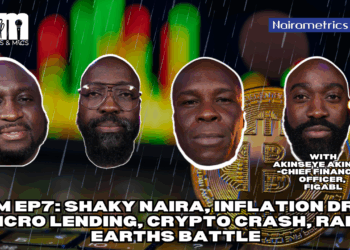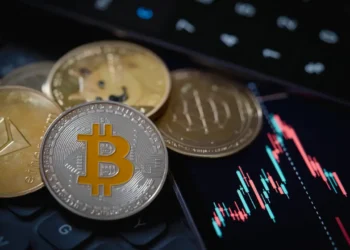The U.S financial regulatory authorities are preparing to take steps to regulate the cryptocurrency market due to growing concerns that lack of proper oversight may cause harm to investors.
In an interview with the Financial Times, Michael Hsu, who was installed this month as acting Comptroller of the Currency (OCC), said he wished US officials would work together to set a “regulatory perimeter” for cryptocurrencies.
READ: Here is why investors are flocking into this $617 billion cryptocurrency sector
“It really comes down to coordinating across the agencies,” Hsu said. “Just in talking to some of my peers, there is interest in co-ordinating a lot more of these things,” he added.
The cryptocurrency market has been a rollercoaster ride this year. In February, the price of Bitcoin began a meteoric rise after Elon Musk, the CEO of Tesla said the company had invested $1.5 billion into the cryptocurrency, triggering the flagship currency to an all-time high of $64,863.10.
However, the price of Bitcoin and other altcoins plunged due to FUD (Fear Uncertainty and Doubt) over a series of news events that cast doubt over the future of the cryptocurrency market. First, was the proposed income tax of 40% by the Biden administration, then environmental concerns highlighted by Elon Musk who then moved to stop Bitcoin from being used as a means of payment when purchasing Tesla cars. The icing on the cake came from Chinese regulators’ crackdown on mining and the use of digital coins.
READ: Billionaires that can triple the value of Bitcoin
These series of events caused Bitcoin to drop to as low as 30,000 from its all-time high, representing a 53.75% drop just in the space of 2 weeks. The cryptocurrency market capitalization also fell below $2 trillion market capitalization to trade as low as $1.2 trillion.
The new U.S approach came this month in the form of a meeting between officials of the three leading federal bank regulators — Hsu’s Office of the Comptroller of the Currency, the Federal Reserve and the Federal Deposit Insurance Corporation which together, forms the inter-agency cryptocurrency “sprint” team. Michael Hsu said the team’s goal was not to make policy but to “put some ideas in front of the agencies to consider” as they try to catch up with the growth in cryptocurrencies.
READ: Bitcoin suffers worst monthly drop since September 2011
“It’s small and it’s senior,” Michael Hsu said of the working group. “The idea is that time is of the essence and if it’s too big that gets harder.”
The Securities and Exchange Commission (SEC) and the Commodity Futures Trading Commission (CFTC) have also discussed how to protect investors in the cryptocurrency market. Gary Gensler, the SEC chair, told a House committee last week that there are “gaps in our current system,” pointing to a potential need for legislation to specify which regulator should oversee cryptocurrency exchanges. Gary Gensler said he intends to bring “similar protections to the exchanges where you trade crypto assets as you might expect at the New York Stock Exchange or Nasdaq.”
Gary Gensler also said the Treasury Department has been focused on “anti-money laundering and guarding against illicit activity” in the cryptocurrency market.
Janet Yellen, the Treasury secretary, had also said she fears Bitcoin is used “often for illicit finance.”
By installing Michael Hsu at the OCC, Yellen also signalled a change in approach to cryptocurrency. Michael Hsu is, in his own words, “a career public servant and a bank supervisor at my core.”
As one of Michael Hsu’s first acts at the OCC, he asked staff to review a Trump-era decision to give national trust charters to companies that provide custody services for cryptocurrencies.
While Michael Hsu believes there is no turning back from innovations such as the blockchain technology used in cryptocurrencies, he said in congressional testimony this month that the current enthusiasm for banking innovation reminded him of the years leading up to the financial crisis. The danger is that new and improved techniques give rise “to a large and less regulated shadow banking system.”
























